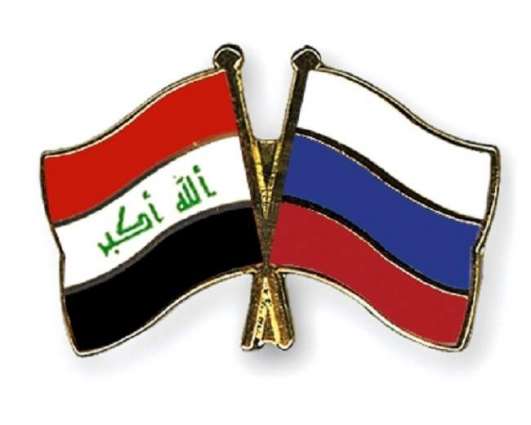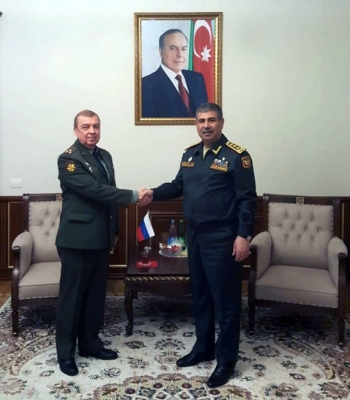Deutsche Welle (14 Şubat 2019)
In a hard-hitting speech, the US vice president has singled out Germany, France and the UK for circumventing sanctions. He called it "an ill-advised step," urging the EU to reverse policy and withdraw from the Iran deal.
US Vice President Mike Pence on Thursday urged EU allies to withdraw from the Iran nuclear deal, saying some countries' latest actions have strained trans-Atlantic relations.
"The time has come for our European partners to withdraw from the Iran nuclear deal and join with us as we bring the economic and diplomatic pressure necessary to give the Iranian people, the region and the world the peace, security and freedom they deserve," Pence said.
The vice president was speaking at a Middle East conference in Warsaw, co-hosted by Poland and the US. Despite assurances the conference aimed to bolster security in the region, its main speakers — including Israeli Prime Minister Benjamin Netanyahu — pushed for further pressure on Iran.
Key takeaways:
Pence singled out Germany, France and the UK for attempting to circumvent US sanctions on Iran by creating a transactions channel called INSTEX, calling this "an ill-advised step."
Described as a "turning point," Netanyahu had hailed the "open meeting with representatives of leading Arab countries that are sitting down together with Israel in order to advance the common interest of war with Iran." The comments were later adapted to use the phrase "combating Iran" in English instead.
Jared Kushner, senior White House adviser, briefed the conference on the US' "deal of the century" to end the Israeli-Palestinian conflict, The Associated Press reported, citing a US diplomat. Kushner reportedly said the deal will be announced after the Israeli elections in April.
British Foreign Minister Jeremy Hunt left the conference early. He attended the conference in order to participate in a meeting aimed at shoring support to end the war in Yemen. Germany, France and the EU declined to send their top diplomats, instead dispatching more junior officials.
Iran deal under threat
Since US President Donald Trump withdrew American support for the Iran nuclear deal, Washington has pressured its European allies to do the same. But the EU has resisted, arguing that Tehran has continued to follow the agreement.
The deal was reached in 2015 in a combined effort between the UK, France, Germany, Russia, China, the US under Barack Obama's leadership, and Iran. It provided a framework in which Iran would end its nuclear program in exchange for the international community dropping paralyzing sanctions. While the EU has sanctioned Iranian security services for attempting to assassinate Iranian dissidents on European soil, it has stopped short of withdrawing support for the deal.
As a way to mediate the effect of US sanctions, Germany, France and the UK established a transactions channel called INSTEX to allow businesses to continue trading with Iranian companies. However, the fact that more countries were not involved could point to growing European uncertainty of Iran and the future of the nuclear deal.
Every evening, DW's editors send out a selection of the day's hard news and quality feature journalism. You can sign up to receive it directly here.
Iran
US sanctions on Iran target Tehran's trade in gold and precious metals, block the sales of passenger jets and restrict Iran's purchase of US dollars, among other punitive measures. The US has also blocked Iran's key oil sales in a further tranche of sanctions, which came into force in November 2018.
ls/msh (AFP, AP, Reuters)
No comments yet.
-
 IRAQ, RUSSIA WORKING ON 25 AGREEMENTS, SOME MAY BE SIGNED IN MARCH - AMBASSADOR
Iraq
15.02.2019
IRAQ, RUSSIA WORKING ON 25 AGREEMENTS, SOME MAY BE SIGNED IN MARCH - AMBASSADOR
Iraq
15.02.2019
- FRENCH PRESIDENT TO PAY STATE VISIT TO ARMENIA The Caucasus and Turkish-Armenian Relations 15.02.2019
-
 AZERBAIJAN DEFENSE MINISTER MEETS RUSSIAN MILITARY ATTACHÉ
The Caucasus and Turkish-Armenian Relations
15.02.2019
AZERBAIJAN DEFENSE MINISTER MEETS RUSSIAN MILITARY ATTACHÉ
The Caucasus and Turkish-Armenian Relations
15.02.2019
- AZERBAIJAN, UK TO EXPAND CULTURAL COOPERATION The Caucasus and Turkish-Armenian Relations 15.02.2019
- RUTTE WARNS EU TO EMBRACE 'REALPOLITIK' FOREIGN POLICY Europe - EU 15.02.2019
-
25.01.2016
THE ARMENIAN QUESTION - BASIC KNOWLEDGE AND DOCUMENTATION -
12.06.2024
THE TRUTH WILL OUT -
27.03.2023
RADİKAL ERMENİ UNSURLARCA GERÇEKLEŞTİRİLEN MEZALİMLER VE VANDALİZM -
17.03.2023
PATRIOTISM PERVERTED -
23.02.2023
MEN ARE LIKE THAT -
03.02.2023
BAKÜ-TİFLİS-CEYHAN BORU HATTININ YAŞANAN TARİHİ -
16.12.2022
INTERNATIONAL SCHOLARS ON THE EVENTS OF 1915 -
07.12.2022
FAKE PHOTOS AND THE ARMENIAN PROPAGANDA -
07.12.2022
ERMENİ PROPAGANDASI VE SAHTE RESİMLER -
01.01.2022
A Letter From Japan - Strategically Mum: The Silence of the Armenians -
01.01.2022
Japonya'dan Bir Mektup - Stratejik Suskunluk: Ermenilerin Sessizliği -
03.06.2020
Anastas Mikoyan: Confessions of an Armenian Bolshevik -
08.04.2020
Sovyet Sonrası Ukrayna’da Devlet, Toplum ve Siyaset - Değişen Dinamikler, Dönüşen Kimlikler -
12.06.2018
Ermeni Sorunuyla İlgili İngiliz Belgeleri (1912-1923) - British Documents on Armenian Question (1912-1923) -
02.12.2016
Turkish-Russian Academics: A Historical Study on the Caucasus -
01.07.2016
Gürcistan'daki Müslüman Topluluklar: Azınlık Hakları, Kimlik, Siyaset -
10.03.2016
Armenian Diaspora: Diaspora, State and the Imagination of the Republic of Armenia -
24.01.2016
ERMENİ SORUNU - TEMEL BİLGİ VE BELGELER (2. BASKI)
-
AVİM Conference Hall 24.01.2023
CONFERENCE TITLED “HUNGARY’S PERSPECTIVES ON THE TURKIC WORLD"









